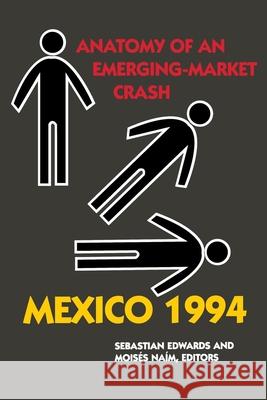Mexico 1994: Anatomy of an Emerging-Market Crash » książka
Mexico 1994: Anatomy of an Emerging-Market Crash
ISBN-13: 9780870031540 / Angielski / Miękka / 2014 / 326 str.
In late December 1994--after having attracted widespread praise as a model of economic reform and becoming a super-magnet for international investors, as well as the United States partner in the newly consummated NAFTA trade agreement--Mexico seemingly overnight plunged into political and economic crisis. The perceived threat to the global economy was to lead the Clinton administration, against strong congressional criticism, to push through an unprecedented $40-billion international rescue package. What went wrong in Mexico? What role was played by flaws in the design of the Mexican reforms, by political as well as economic decision-making in the context of the crises that shook the country, by external market forces, and by sheer bad luck? What lessons can the peso crisis offer to those grappling with newly unfolding crises in other emerging-market economies around the world? The complex anatomy of this 'first economic crisis of the 21st century' is here examined-in sometimes sharply divergent perspectives--by a distinguished international group that includes ex-ministers, financial market participants, leading political scientists and economists, and senior officials from the World Bank, the IMF, and the Inter-American Development Bank. In addition to the editors, the contributors are Robert L. Bartley, Nancy Birdsall, Agustino Carstens, Rudiger Dornbusch, Denise Dresser, Jeffry A. Frieden, Michael Gavin, Francisco Gil-Diaz, David D. Hale, Ricardo Hausmann, Claudio M. Loser, and Peter H. Smith.











